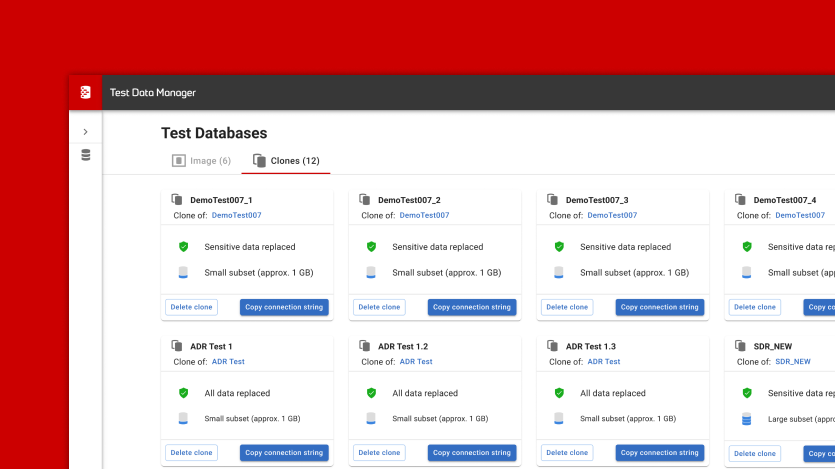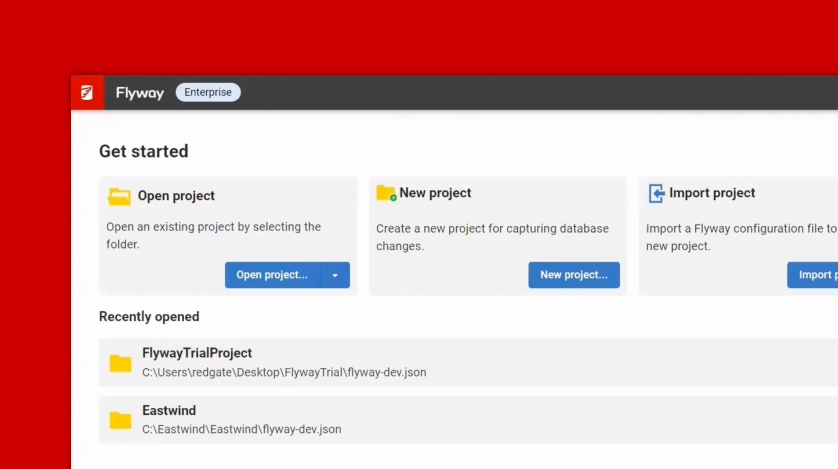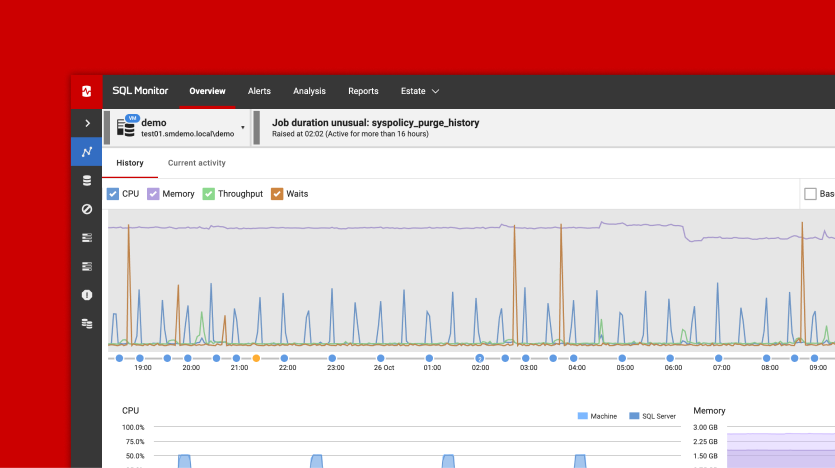Redgate launches Test Data Management tool, Redgate Clone, to support DevOps pipelines for SQL Server, PostgreSQL, MySQL and Oracle databases
Redgate Software announced today the introduction of a new and comprehensive cross-database DevOps tool, which allows development teams to include test data management as an easy step in their DevOps processes. Redgate Clone enables small, light clones of databases to be created manually or as an automated process in their CI and CD pipelines.
Redgate Software announced today the introduction of a new and comprehensive cross-database DevOps tool, which allows development teams to include test data management as an easy and natural step in their DevOps processes across the four most popular databases.
Taking advantage of database virtualization technologies, Redgate Clone enables small and light clones of databases to be created manually or as part of an automated process, which can be used for development and testing, and as part of Continuous Integration and Continuous Delivery pipelines.
Teams working with SQL Server, PostgreSQL, MySQL and Oracle can now branch, reset and version their database instances at application-code speed as they develop, with zero risk of affecting other team members. To further improve modern development environments, Redgate Clone supports teams working across on-premises, cloud and hybrid architectures, including those running containers and Kubernetes.
Enterprises can also take full advantage of Redgate Clone’s ability to spin up compliant copies of production-like data in CI and CD pipelines, with the tool now included in Flyway Enterprise, which standardizes database DevOps across organizations using automation and best-in-class tools.
Developers can now self-serve production-like clones of SQL Server, PostgreSQL, MySQL and Oracle databases in seconds, and validate database updates with an advanced set of tests, checks and reports, which can be run as part of an automated process.
Because the virtual clones in Redgate Clone are quick to create, independent, and have minimal storage overhead, they enable consistent production-like development environments to be automatically provisioned in seconds, and free developers from working on shared databases, enabling them to carry out their work and test new ideas without the risk of disrupting each other.
Testing with consistent, realistic, and compliant datasets throughout the development process means developers can catch data-related issues long before they reach customers. All of which increases efficiency, minimizes costs, standardizes practices across development teams, improves the quality of software releases, and releases value to customers faster.
Importantly with Redgate Clone, a clone of an entire instance can be spun up with all of its databases and configuration data. As a result, teams are not blocked by cross-database dependencies, greatly improving their ability to develop features and resolve issues.
The ability of the clones to be versioned as work progresses also enables developers to restore to a given point in time to restart or remedy their work if an issue arises. And to further improve efficiencies, Redgate Clone runs as a central service and removes the maintenance overhead of local database instances and agents.
When used to standardize test data management practices across databases and teams, and across architectures and containers, Redgate Clone improves the quality of the data used in testing, the safety of that data, and the speed at which databases and applications can be developed.
For more information, visit redgate.com/clone.







